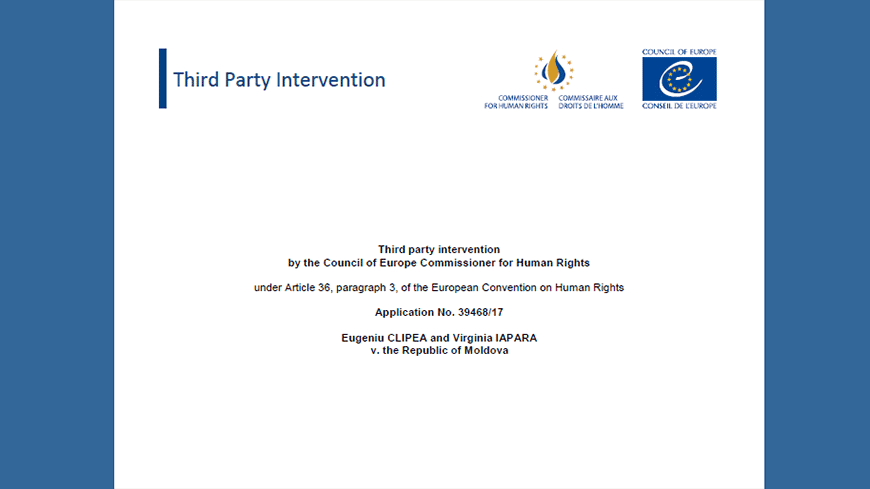Today the Commissioner published her written observations submitted to the European Court of Human Rights concerning the case of Clipea and Iapara v. the Republic of Moldova, which relates to alleged human rights violations committed in connection with the applicants’ stay in a psychiatric hospital.
The Commissioner draws the Court’s attention to a fundamental shift in attitudes against institution-based mental health services and the use of coercion in psychiatry which is taking place at the global level and in Europe since the entry into force of the UN Convention on the Rights of Persons with Disabilities. She considers that in the light of this shift, the traditional approach which takes coercion for granted for some persons with psychosocial disabilities as a “last resort” option, as long as certain procedural safeguards have been respected, is no longer tenable. Member states should instead strive to provide community-based, recovery-oriented mental health services based on consent. She also points to the often insurmountable barriers persons with psychosocial disabilities face in bringing human rights violations to light, owing to entrenched forms of discrimination by investigating authorities and courts.
The Commissioner concludes that an evolution is necessary in the protection afforded by the European Convention on Human Rights to persons with psychosocial disabilities “in order to avoid a widening gap between this protection and that provided under the United Nations Convention on the Rights of Persons with Disabilities”. She shares her reflections on how this evolution could take place, in keeping with the Court’s existing case-law.



